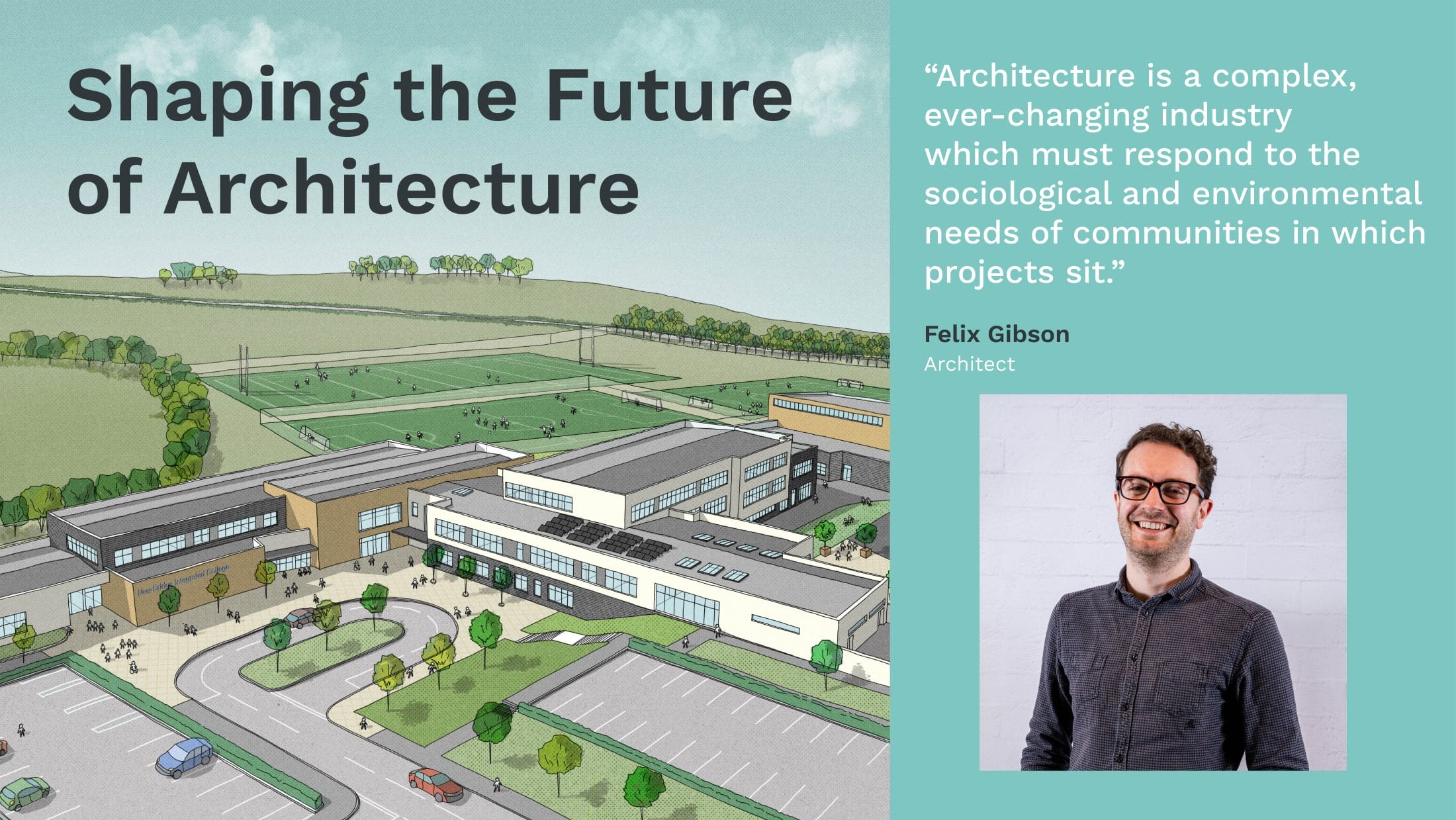
The first in our new ‘In the Spotlight’ series, we catch up with Felix Gibson, Architect based in our Belfast Studio to find out why he’s so passionate about development initiatives, and why he believes continuous professional development is key to remaining relevant in a vital sector.
“To keep ourselves and HLM at the forefront of the industry, we need to undertake as much extra-curricular learning and training as possible. We need to make sure that we don’t just follow new trends, but that we are the ones shaping the future of the industry.”
Architecture is a complex, ever-changing industry which must respond to the sociological and environmental needs of communities in which projects sit. Subsequently, as architects we have a responsibility to develop our skills and knowledge as new avenues emerge, to ensure our work is fully representative of the wider places and communities that they serve.
As Architects, our job is constantly evolving and changing. To keep ourselves and HLM at the forefront of the industry, we need to undertake as much extra-curricular learning and training as possible. We need to make sure that we don’t just follow new trends, but that we are the ones shaping the future of the industry. We can only achieve this by being as active as possible within the wider profession – and continued learning and development is crucial to that.
Architecture is renowned for having a highly technical learning process, and there can be a lack of skills development, outside of the technical arena, that are comparably important when designing for people and the environment. The ability to listen, understand and apply this knowledge to design projects is also imperative.
I recently attended the RIBA Future Leaders Seminar, ‘Learning to Lead’, which I found incredibly useful. It reinforced the idea that our duty is not only to lead as professionals within the industry through the projects that we develop, but also as humans in the way we interact. The programme covers both soft skills and applied knowledge, enabling architects with a wealth of capabilities that will help us to be more effective in our roles.
With all projects I work on – primarily in the education sector – these different skills are applied on a daily basis. New-Bridge Integrated College, Loughbrickland, has been designed to support and motivate students, providing them with enriched learning experiences through the inclusion of wide-ranging facilities and activities. My passion for development is synonymous with projects like this; creating the very best education facilities that we can, to support and enhance continued learning.
As education designers, we need to ensure our buildings are cutting edge in terms of modern education design, and future-proofed to cater for where we think that sector is going – ensuring that the next generation coming through are getting the best possible chances and opportunities. The only way we can do this is by continuous learning and development, and events like the RIBA Future Leaders event are key to this.
An ongoing commitment to personal and professional development can only have positive implications for our work.
Related posts


